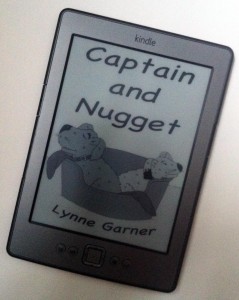What’s the Benefit of Your Book?
- Jun
- 15
- Posted by Site Editor
- Posted in Kindle, Mad Moment Media, Writing for children
- 0
 When I’m not being a writer I work in education, so I’m continually undertaking CPD (Continued Professional Development) and every once in a while I revisit old notes to try to rediscover something I’ve forgotten. Recently I came across some notes I’d made whilst reading a book by Paul McKenna entitled ‘I Can Make You Rich. In this book he includes a quote from Sol Kurzner (billionaire hotelier):
When I’m not being a writer I work in education, so I’m continually undertaking CPD (Continued Professional Development) and every once in a while I revisit old notes to try to rediscover something I’ve forgotten. Recently I came across some notes I’d made whilst reading a book by Paul McKenna entitled ‘I Can Make You Rich. In this book he includes a quote from Sol Kurzner (billionaire hotelier):
“You’ve got to be totally in love with what you do because you are going to be spending a lot of time doing it.”
Thankfully I love writing but I still need help with marketing (which was why I’d orginally read the book). Whilst reading my notes I rediscovered that people who purchase my books are looking for a benefit. With many potential readers the benefit is they get enjo
yment out of reading. However other readers may be looking for an additional something which I could use for my marketing purposes.
I continued to read and as I did I came across some notes I’d made regarding research which had focused on the relationship between fostering the habit of reading in children from an early age and their success later in life. The American Academy of Paediatrics (AAP) “strongly recommends reading to children every day, starting after they are first born,” because “reading stimulates the development of the brain, language and a closer emotional relationship with a child.” (quote came from this website).
I then remembered I’d started looking at the books I’d turned into eBooks differently but had then got out of that habit. For example my picture ebook Captain and Nugget includes the theme of sharing. However the added benefit to the purchaser is that reading it to a child can actually help in a number of ways. For example a study conducted in a Rhode Island Hospital, USA compared two groups of eight months old. One group was read to often as babies, while the other was not. It was shown that those who were read to have their “receptive” vocabularies (number of words they understand) increased 40% since babyhood, while the non-reading group increased by just 16%. (Stats came from this website).
In my notes I’d also jotted down this quote (to read further click here):
“Research findings in applied linguistics and reading research consistently show a strong correlation between reading proficiency and academic success at all ages, from the primary school right through to university level: students who read a lot and who understand what they read usually attain good grades.”
Having revisited my notes I’m now thinking about the way I market my short story collections. I’m not just going to think, “entertaining stories” I’m going to think, “hidden long term, life changing benefit” or at least try to.
